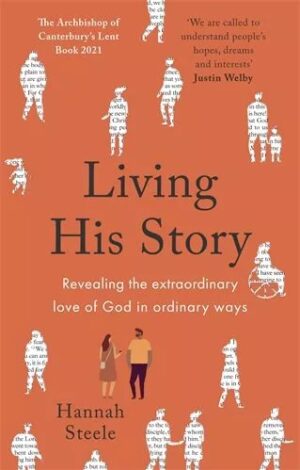



This session explores the different ways that people come to faith in Jesus and unpacks the implications of this for our models of evangelism. The session aims to prepare you to share the gospel both ‘long and short’.
This session is based around Chapter 7 of Hannah Steele’s book Living His Story. A featured passage is below, but you are encouraged to read the whole chapter as the questions often reference the book.
The book of Acts records for us many of the conversations the Apostle Paul had with those who were sceptical about the Christian faith. One such conversation came after he had spent two years imprisoned on a false charge, when Paul finds himself before King Agrippa in Acts 26. Agrippa stood in the lineage of a string of kings who had opposed truth and righteousness, not least Herod the Great who had tried to kill Jesus as a young child. And now Paul himself stands before the King, seeking his help and ultimately awaiting his fate.
Paul’s response in this situation was, as on numerous occasions, simply to tell the story of God’s work in his life. He does not engage in legal argument about his unlawful imprisonment but honestly and openly traces his journey of faith, from his religious childhood, through the dramatic encounter with the risen Jesus on the road to Damascus, through to his present situation. The only defence he needs is to narrate his experience of God’s work in his life and he does this calmly and full of respect for his listeners.
What is particularly striking in this testimony is the boldness with which Paul directs his question to the King himself: ‘King Agrippa, Do you believe the prophets? I know that you believe.’ One can imagine the shock at the brazenness of Paul’s question to the King, demonstrating that all those years in prison have in no way dampened his courage. The King’s reply is similarly feisty, questioning Paul: ‘Are you so quickly persuading me to become a Christian?’ Suddenly the attention is not upon Paul’s story but on the King’s reaction to it. It is evident that Paul’s testimony leaves the ‘what about you?’ question lingering in the air. Paul’s response reveals a profound truth about the ways in which people come to faith: ‘Whether quickly or not, I pray to God that not only you but also all who are listening to me today might become such as I am – except for these chains’ (Acts 26.27–29). In this statement Paul reveals his evangelist’s heart. The beauty of Paul’s evangelistic approach in this incident is the transparency of his desire that every person listening would meet Jesus. However, his use of the phrase ‘quickly or not’, translated in the NIV as ‘long or short’, indicated what Paul had learned about the variety of ways in which different people made the journey of faith. For some, their experience would be an instant moment of conversion, a crisis point in which their life is instantly changed, but for others it would take more time, a slowly evolving movement towards faith in Christ. What may appear as a somewhat throwaway comment from Paul is actually a principle that gives hope to us as we seek to witness to those around us. Since receiving the message from my friend Chris, this idea of ‘long or short’ has been both helpful and hopeful in understanding that the journey towards faith will look very different from one person to another.